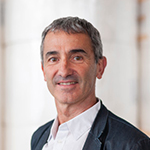Main features:
CO2 Emissions saved (tCO2)
12,000 TEqCO2/Year
Investment
€25 million
Increasing renewable electricity production
by 20 GWh/year from Fatal Energy
Rayonier Advance Material, is one of the world’s largest producers of specialty cellulose pulp, manufacturing high added value products with multiple applications (food, inks, paints, varnishes, concrete…), also used by the pharmaceutical and cosmetics industries. Rayonier carried out a decarbonation project in its biorefinery located in Tartas (France), consisting in the implementation of a new a “high added value” combined heat and power system to i) better valorise by-products of cellulose pulp, ii) improve low temperature heat recovery iii) improve overall energy efficiency of the process dedicated to the production of bio-based products and bio-fuels (also reducing the share of fossil fuels) and iv) modernise the site in preparation of further transformation projects. This decarbonation project was promoted by Rayonier AM Management both internally and externally and was also supported by the Ministry. Rayonier AM was granted feed tariff for the production of renewable electricity and received subvention from the Region.
The decarbonation project consisted in i) installing a steam turbine to increase renewable electricity production and ii) implementing a low temperature heat recovery system on biomass boiler fumes.
Main impacts of this project were i) an increase in the efficiency of biomass boilers, ii) a drying of solid biomass (used as a fuel) from low temperature heat, iii) a reduction of fossil energy consumption and iv) an increase of electricity generation.
Overall, this decarbonation project performed in the biorefinery has reduced carbon emissions and environmental impact, while improving energy efficiency and reducing operating costs.
The project will increase energy efficiency of the biorefinery by 8%:
The implementation of the project has been efficient regarding cost control (no cost overruns with regard forecasted investment of €24 million), and deadlines (sale of electricity on time).
The biomass dryer installed at Rayonier AM is the largest in Europe and has become a reference for optimising the energy efficiency of all solid biomass heaters.

Stéphane Marquerie
Industrial Manager
Rayonier AM Tartas pulp mill is moving to high efficiency
biorefinery process since 20 years. The first step has
been to move from paper and fluff pulp to specilities
chemical application to produce bio-materials. The other
challenge achieved during the same period was to reduce
Environemtal impact by producing add value bio-gas
and bio-fuel from COD. The last step recently launched
is to improve energy efficiency and carbon foot print by
recovering fatal energy (from water and gas emissions) to
bio-electricity. All this ambitious and efficient program
brung the mill to one of more efficiente sulfite mill in the
world with 78% of energy efficiency and less than 5% of
fossil fuel consumption. The next step will be to produce
bioéthanol with the lowest foot print carbon of the world
and achieve zero energy impact.
Main features:
CO2 Emissions saved (tCO2)
12,000 TEqCO2/Year
Investment
€25 million
Increasing renewable electricity production
by 20 GWh/year from Fatal Energy